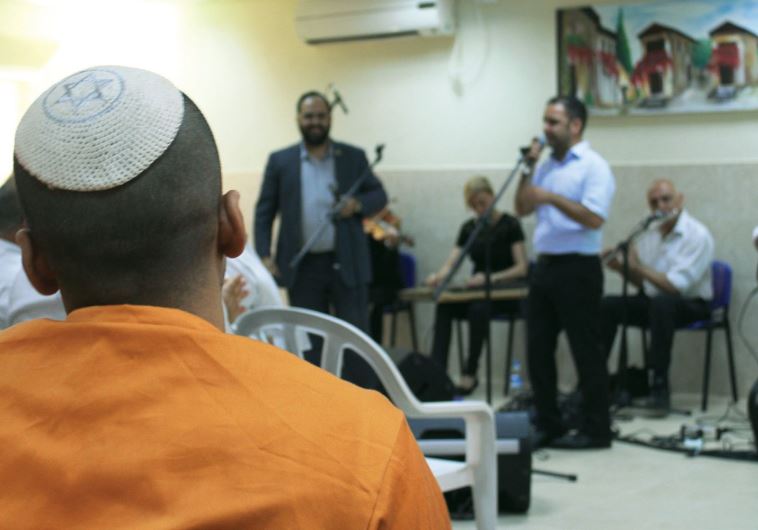Israeli convicts make the most of High Holy Days behind bars
Like on the outside, the usual sparsely attended synagogues are bursting on Yom Kippur in prison, with seats in high demand.
 The Israeli Andalusian Orchestra plays traditional music to the prisoners ahead of the High Holy Days(photo credit: BEN HARTMAN)
The Israeli Andalusian Orchestra plays traditional music to the prisoners ahead of the High Holy Days(photo credit: BEN HARTMAN)